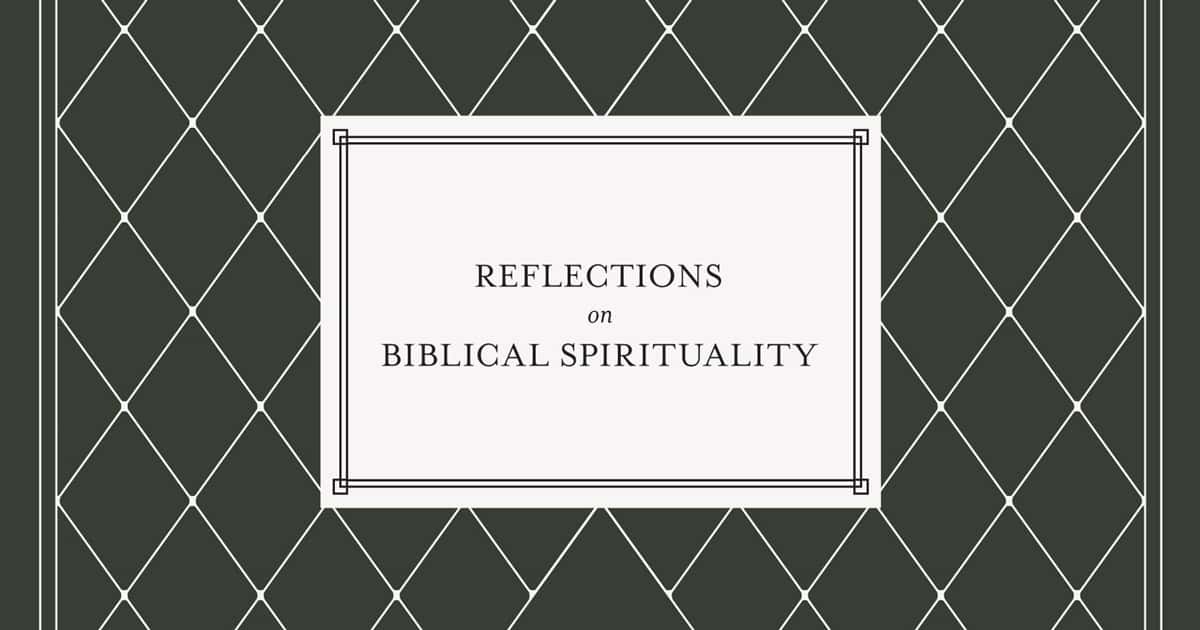
Spirituality is a buzzword on the current church scene in North America. A plethora of books exist that one could read in order to be enlightened in the methods of becoming more “spiritual” but not necessarily more Christlike. Sadly, many of these methods are less about Christianity than about spirituality. From labyrinth walking to mind-emptying meditation, these methods recall that telling biblical text in Judges: “Everyone did what was right in his own eyes” ( Judg 21:25b).
Since first publishing his work Spiritual Disciplines for the Christian Life, Donald S. Whitney has sought to redeem this field of spirituality—in some ways a menagerie!—by elucidating the classical spiritual disciplines. Instead of using any and every means one might be able to think of, Don instead has sought to limit the means of grace to the word of God. To that point, he has made fashionable the phrase “biblical spirituality” through his writings, his seminary-level courses at The Southern Baptist Theological Seminary, and his itinerant conference and preaching ministry in local churches.
In so doing, Don has managed to bring the academic study of spirituality to bear upon the daily lives of countless Christians through the ministry of the local church. Whereas many Christians look upon higher theological education as suspect, Don’s academic writing offers a sweet balm to hurting souls who want to know how they can walk closer with the Lord. They want to do more than merely read their Bible; they want to become more like Christ, and they have come to realize that this will require discipline (Rom 12:2). But more often than not, they do not know where to begin. That is where Don’s ministry has aided the most. He helps Christians to look to the word of God and seek to discipline themselves for the purpose of godliness.
And at the very heart of all of this is Don’s ultimate aim to glorify God. Central to Don’s ministry has always been the word of God. If a particular spiritual discipline is not found in the Bible, then it is, by default, not a biblical spiritual discipline. When he writes of various spiritual disciplines, he only writes of those that are found explicitly in Scripture. And when a discipline is found in the Bible, he reasons, it will be found throughout the history of the church. He has sought to learn from giants of the faith like David Brainerd (on journaling), Jonathan Edwards (on meditation), George Muller (on prayer), and Charles Spurgeon (on Bible reading), to name only four, who have modeled biblical spirituality. Don is compelled to learn from those who in the past sought spiritual counsel from the word of God and handed down a biblically informed tradition of spiritual disciplines.
Don’s second major focus has been simplicity. A spiritual walk should never be so difficult that it is beyond the abilities of a child of God who has been redeemed by the blood of Jesus Christ. It is true that discipline requires a level of commitment sometimes beyond the reach of young children who have professed faith, but they can pray. They can read a Bible or have a Bible read to them. They can sing hymns and psalms and spiritual songs (Col 3:16). They can begin to cultivate methods of meditation so that they learn from an early age to bring every thought captive to the Lord (2 Cor 10:5).
The essays collected in The Spirit of Holiness have all been written in honor of this distinct ministry of Donald S. Whitney. The reader will find a set of essays that, first, articulate how specific saints from the halls of church history—the Puritans, Thomas Manton, Hercules Collins, Jonathan Edwards, Andrew Fuller, Thomas Steevens, and C. H. Spurgeon—practiced the classical spiritual disciplines and how we can imitate their faith. R. Albert Mohler’s essay provides a transition to the second set of essays, which are more practice-oriented: he shares how Don’s book Spiritual Disciplines for the Christian Life helped him to recover a genuine Protestant spiritual discipline. In the second set of essays, the subjects of providence, sanctification, perseverance, and the local church as the locus of spirituality help the reader to see how spirituality applies to everyday life.
It is our prayer that these essays, written in honor of our friend and mentor in spirituality, Dr. Donald S. Whitney, be received as gladly by you, the reader, as they were written by the writers. To God be the glory!
Watch R. Albert Mohler present Donald Whitney with a copy of The Spirit of Holiness:
This post is adapted from the preface to The Spirit of Holiness: Reflections on Biblical Spirituality edited by Terry Delaney and Roger D. Duke (Lexham Press, 2020).







